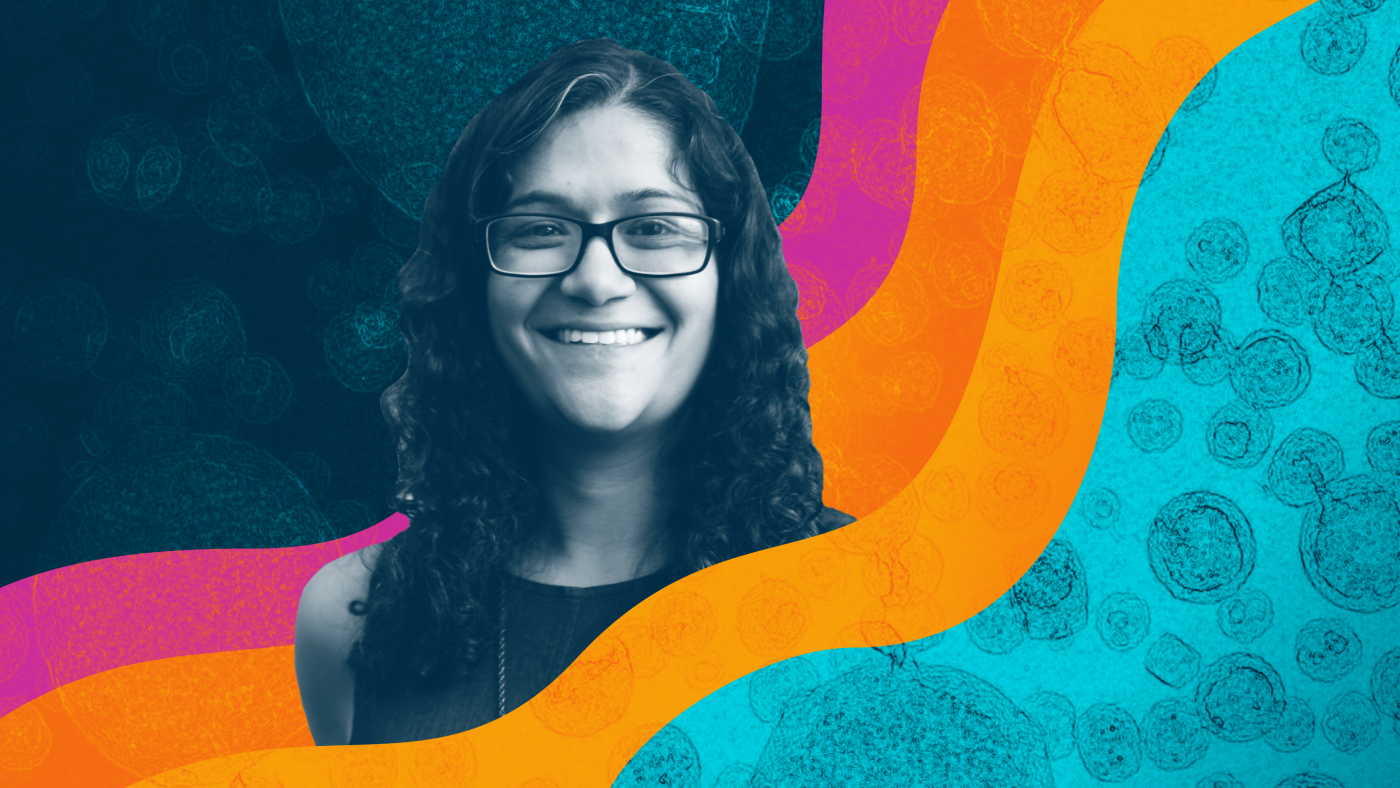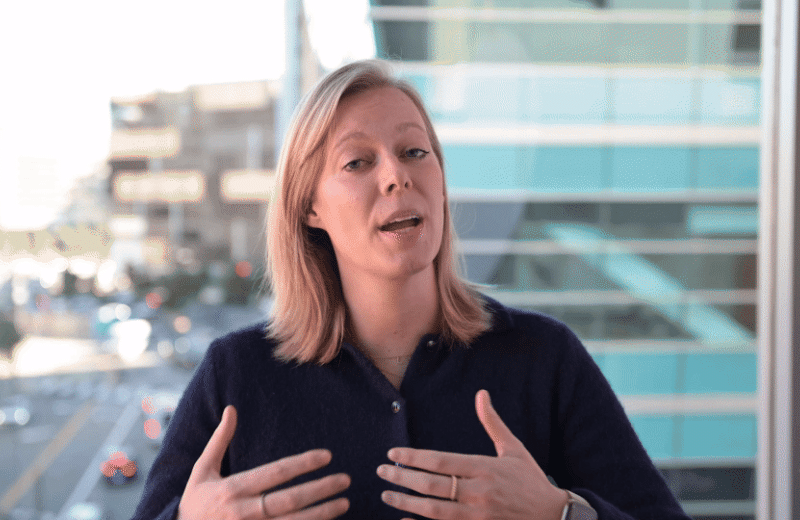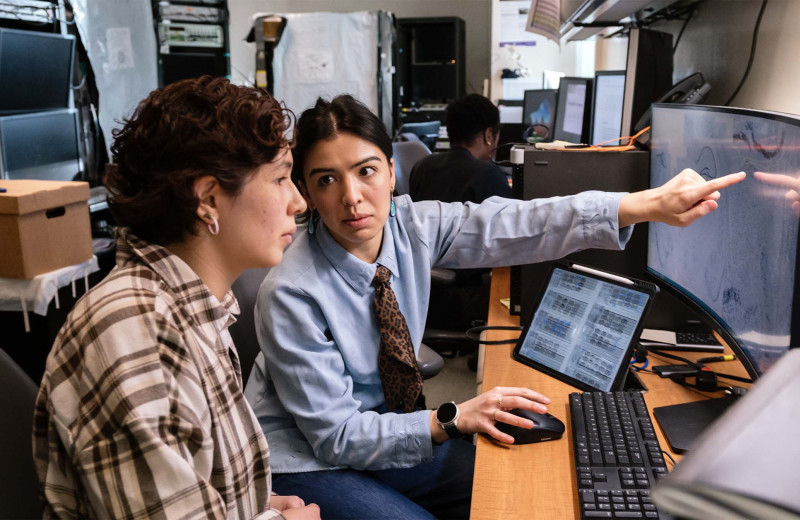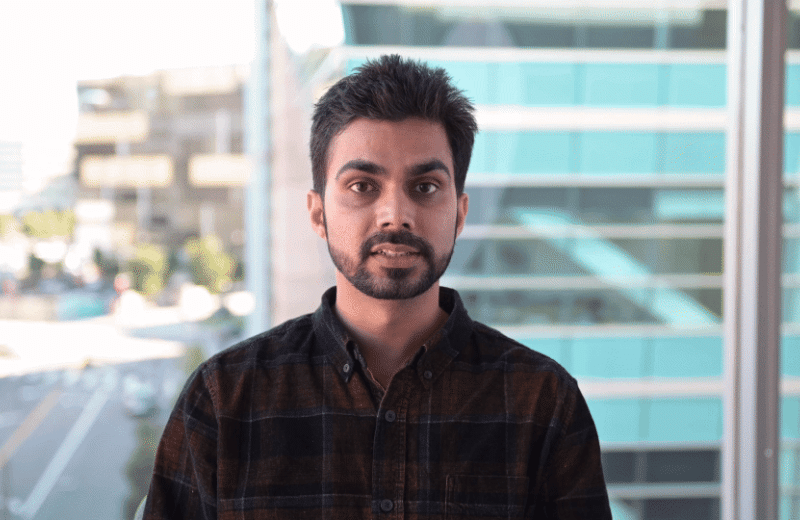Gladstone NOW: The Campaign Join Us on the Journey✕

Angel Kaur, an assistant professor of neuroscience at the University of North Carolina, Asheville, speaks about how organizations can support LGBTQ+ scientists.
This year, as a way to celebrate Pride Month, Gladstone is featuring the panelists from Out in Science with a series of articles that asks them five questions.
Angel Kaur, PhD (she/her), is an assistant professor of neuroscience at the University of North Carolina, Asheville. Her current research focuses on high-impact practices in undergraduate STEM education in a liberal arts environment. She is also an artist and graphic designer, and a mom to 6-year-old twins and a 75-pound puppy named Flynn.
What is the current focus of your work or research?
Learning strategies that can increase student motivation and engagement in deeper learning in undergraduate STEM courses.
Why is it important to you to be out in science?
Because not being my whole self would be like holding my breath all the time.
How can organizations create a more inclusive and supportive environment for LGBTQ+ scientists?
Action, not words. Promote LGBTQ+ scientists to leadership positions, celebrate their accomplishments, ensure clearly labeled gender-neutral bathroom facilities exist, ask for and share your pronouns (not just in LGBTQ+ affinity meetings but in all meetings), clearly classify transmen as men and transwomen as women in any institutional form, and hold those that create unsafe workspaces accountable for their actions.
What advice do you have for LBGTQ+ scientists who are early in their career?
Find your community. It doesn’t have to be within the department, program, or university you are in. Your community can help you put down any hurt you experience out there in the world so it doesn’t bog you down and hold you back. Find them, and every step of your career will feel easier because you won’t be walking it alone.
Have you had a mentor who has been particularly impactful on your career?
The most impactful mentors I’ve had have been peers—the ones in my community. Their support has transformed my confidence and allowed me to embrace the career that I want, rather than the one I’m expected to have.
Meet Gladstone: Alisa Dietl
Meet Gladstone: Alisa Dietl
Alisa Dietl brings her international training and clinical perspective to Gladstone, where she works to engineer more effective cancer immunotherapies for solid tumors.
Graduate Students and Postdocs Profile Cancer Pelka LabVoices of Outstanding Mentorship
Voices of Outstanding Mentorship
Three recipients of Gladstone’s Outstanding Mentoring Award share their personal approaches to mentorship and reflect how this passion has shaped their own growth as leaders.
Profile Roan Lab Graduate Students and PostdocsMeet Gladstone: Shyam Jinagal
Meet Gladstone: Shyam Jinagal
Shyam Jinagal explores how genetics, aging, and regeneration shape the heart—and how those insights could one day restore heart function after injury.
Graduate Students and Postdocs Profile Cardiovascular Disease Srivastava Lab



